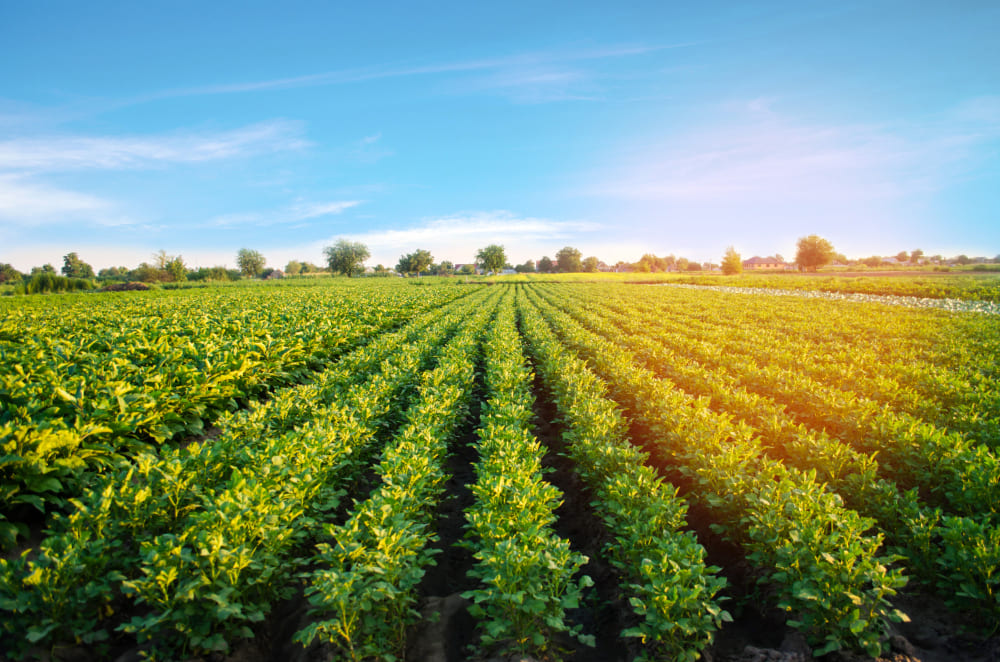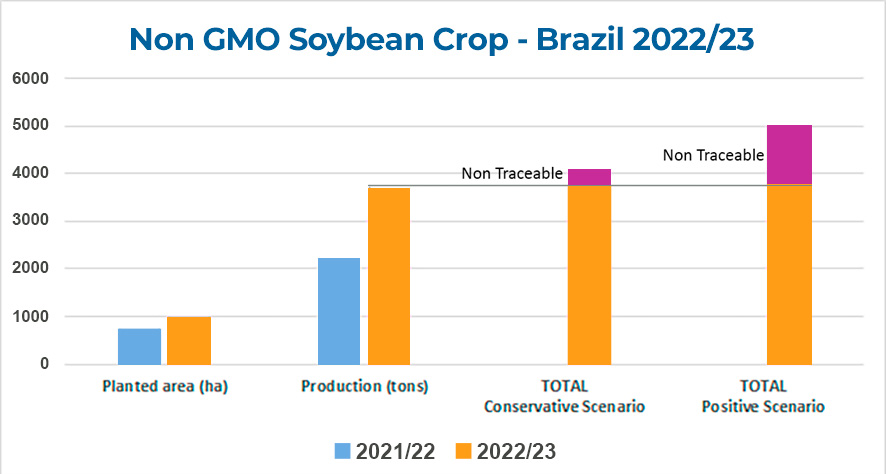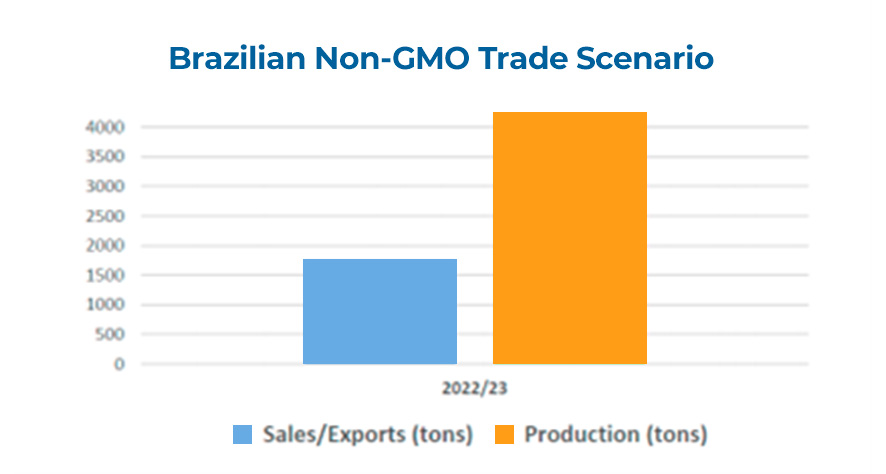Brazil: the non-GMO crop outlook for 2023

The Brazilian soybean crop for the 2022/23 cycle is estimated to yield over 150 million tons, a historic record. The country consolidates its position as the major producer and exporter of soybeans and soybean products to the world. Harvesting works have reached nearly 40% of the total planted area.
Although the non-GMO share has been drastically reduced over the years, the current crop will see at least 4,000,000 tons of non-GMO beans, almost twice the volume harvested last year. Other 1,000,000 tons are projected to be planted outside the traceable production. Skyrocketing premium prices last season brought a flood of farmers back to non-GMO production. Also, the exceptional weather conditions for Mato Grosso and the Cerrados area, with yields reaching 60 to 65 bags per hectare, or nearly 3.6 to 3.9 tons/ha, granted solid volumes at harvest. The positive scenario includes new varieties developed over the last 10 years which are now reaching the market, filling the technological gap between GMO and non-GMO seeds. High-performance seeds from Argentina and local germplasm developments by EMBRAPA complete the drivers of high yields for non-GMO farmers in Brazil.

Source: market analysts, seed producers, traders and Instituto Soja Livre
Paraná, the second larger state producing non-GM soybean crops, suffered significant losses in the total crop last year. The current crop will see 20.7 million tons in the state, up from 12 million tons last year. Average yields in the state are projected to reach 3.6 tons/ha, compared to 2.1 tons/ha in 2022. The state should respond for almost a million tons of conventional (non-GMO) beans this year.
Despite the positive scenario for production, sales are stalled. European buyers for soybean meal have consolidated almost their total demand for the year and SPC importers are still seeing available stocks from last season in Europe. Under the current perspective, added to the significant growth in production, the premium paid to farmers over certified non-GMO soybeans has melted down, and some producers are starting to sell their products in the regular Chicago market. The perspective of a record crop for soybeans and also corn, with massive increases in exports, has built up the pressure to move volumes towards the ports. The national inland storage capacity is estimated at 187.9 million tons, compared to a summer harvest projection for 189.5 million tons, considering just the main crops – soybeans, corn, and rice. Under extra pressure due to the segregation requirements for the non-GMO chain, conventional soybean farmers selling their production outside traceability schemes are growing significantly, a movement that might cloud more precise estimates for non-GMO production.

Source: market analysts, seed producers and traders
The total volume of certified traceable soybean and soybean exports to Europe should reach 1.7 million tons, against a total Brazilian production of over 4 million tons, which may create an overwhelming surplus. The figures point to a difficult market scenario for 2024, farmers frustration over non-GMO sales should impact the purchase of seeds for the next cycle.
The imbalance between supply and demand has continuously hurt the non-GMO industry. Last year, the reduced non-GMO crop in Brazil responded for less than 2% of the national soybean crop, the lowest in history, a volume that amplified the uncertainties amongst European retailers and animal protein producers regarding the availability of stocks for their products labelled under non-GMO.
This year, the non-GMO production increased to more than 3% of the national crop which has itself been incremented by 25 million tons, compared to 2022. Expectedly, the import volumes did not increase correspondingly, the extra volumes exerting a negative effect on prices.
The roller-coast effect and uncertainties have rendered destructive impacts.
The situation urges for better communication and cooperation between Europe and Brazil. Seed breeders and farmers in Brazil see longer frame agreements (extended to two years) as a positive tool to tackle the continuous crisis scenario. In addition, traceability projects running over decades within the non-GMO chain represent an undeniable leverage to tackle the new EU deforestation-free regulations. However, it is crucial that coordinated efforts are discussed collectively and openly.